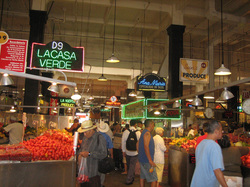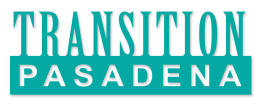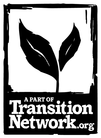
Mr. Kent talked about the aspects that make up truly great public spaces, places that invite people to walk, linger, dine, shop, and socialize, all with representative images; and contrasted that with examples of the kinds of places and structures (even 'award-winning' or 'iconic' ones) that people are uncomfortable in and avoid, places that aren't human in scale or lack sidewalks, for instance.
After the primer, we split into groups and surveyed sites in the Playhouse District for how good or bad they rated in terms of public uses, sociability, comfort, and accessibility. It was an engaging event, as we not only tried to assess current conditions, but imagine what 'might be' if we implemented some changes. At the end, a member of each team summarized their findings and ideas for the entire group, and we wrapped up with a short encouraging 'rallying speech' by Mr. Kent.
The mantra used by the Project for Public Places has a particularly Transition-y ring to it: "Lighter, Quicker, Cheaper". Once you know what you want to do, start doing it right away, possibly even just on a 'trial basis' (add seating, shade trees or canopies, kiosk vendors, etc.), don't wait for money or a big project development plan, allow the changes to be incremental and emergent as more resources, manpower, and public backing becomes available (widening sidewalks, slowing street traffic, removing eyesore structures).
In the context of Transition, looking forward to a resource-poor future, public spaces may well be our best lifelines for civil society and to obtain goods. A market square or a main street will have more resilience than a big box outlet mall at the fringes of the suburbs. Public parks and plazas are more versatile venues than a multiplex. Places that people can easily walk or take transit to get to should thrive in a lower-energy economy.
I think there is a great need to identify, protect, and improve the good public places we still have, and find opportunities to create new public spaces in neighborhoods where they are lacking. One of the best ways to build strength in a community is to foster its sense of identity as a community. It seems elementary to say that great public spaces should make for more resilient communities.
— Qrys Cunningham



